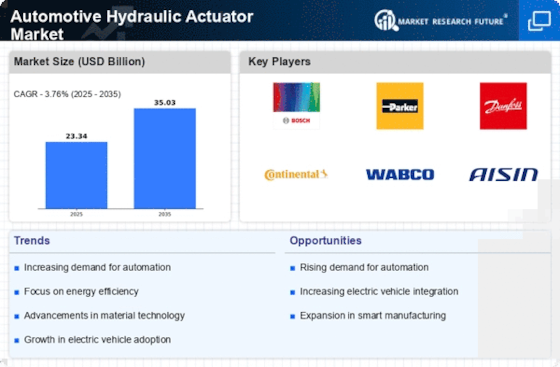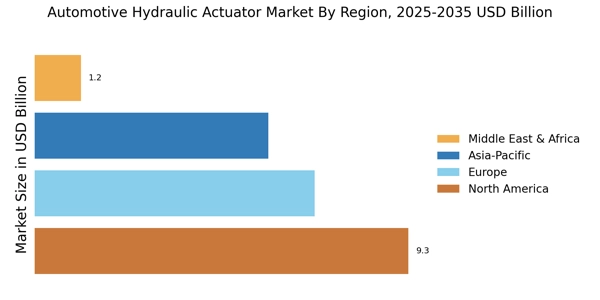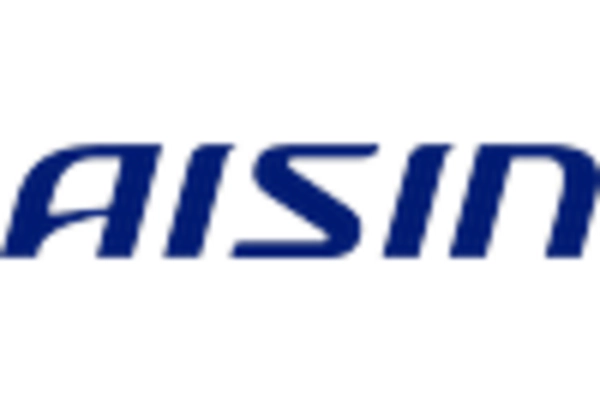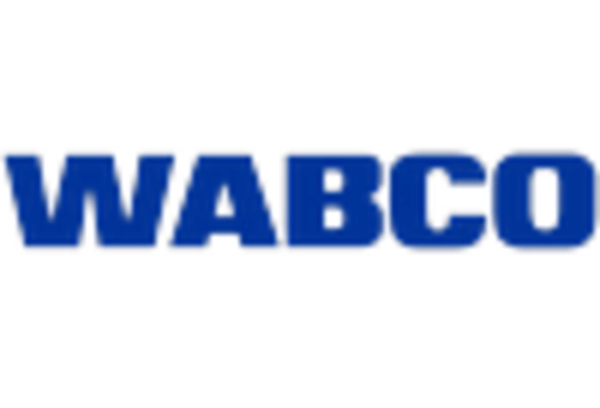Growth in Automotive Production
The Automotive Hydraulic Actuator Market is poised for growth, driven by the overall increase in automotive production. As manufacturers ramp up production to meet rising consumer demand, the need for efficient and reliable hydraulic systems becomes paramount. In recent years, production levels have shown a steady upward trajectory, with estimates indicating a potential increase of 5% annually. This growth necessitates the integration of hydraulic actuators in various vehicle systems, including braking and steering, thereby bolstering the market for these components. The expansion of automotive production facilities further supports this trend.
Rising Demand for Fuel Efficiency
The Automotive Hydraulic Actuator Market is experiencing a notable increase in demand for fuel-efficient vehicles. As consumers become more environmentally conscious, automakers are compelled to enhance fuel efficiency in their offerings. Hydraulic actuators play a crucial role in optimizing engine performance and reducing fuel consumption. According to recent data, vehicles equipped with advanced hydraulic systems can achieve up to 15% better fuel efficiency compared to traditional systems. This trend is likely to drive the adoption of hydraulic actuators, as manufacturers seek to meet regulatory standards and consumer expectations for sustainability.
Regulatory Compliance and Safety Standards
The Automotive Hydraulic Actuator Market is significantly influenced by stringent regulatory compliance and safety standards. Governments worldwide are implementing regulations that mandate enhanced safety features in vehicles, which often require advanced hydraulic systems. For instance, the introduction of electronic stability control systems necessitates the use of hydraulic actuators for effective operation. As a result, manufacturers are increasingly investing in hydraulic technologies to ensure compliance with these regulations. This trend not only enhances vehicle safety but also drives the demand for hydraulic actuators, as automakers strive to meet evolving safety standards.
Technological Innovations in Actuator Design
The Automotive Hydraulic Actuator Market is benefiting from ongoing technological innovations in actuator design. Advances in materials and engineering techniques have led to the development of more compact, lightweight, and efficient hydraulic actuators. These innovations enable automakers to integrate hydraulic systems into a wider range of vehicle models, enhancing performance and reliability. Recent studies suggest that the introduction of new actuator designs could improve response times and reduce maintenance costs, making them more appealing to manufacturers. As technology continues to evolve, the market for hydraulic actuators is likely to expand, driven by these advancements.
Increasing Adoption of Advanced Driver Assistance Systems (ADAS)
The Automotive Hydraulic Actuator Market is witnessing a surge in demand due to the increasing adoption of Advanced Driver Assistance Systems (ADAS). These systems rely heavily on hydraulic actuators for functionalities such as automatic braking, lane-keeping assistance, and adaptive cruise control. As automakers strive to enhance vehicle safety and convenience, the integration of ADAS features becomes essential. Market data indicates that the ADAS segment is expected to grow at a compound annual growth rate of over 20% in the coming years. This growth directly correlates with the rising demand for hydraulic actuators, as they are integral to the operation of these advanced systems.


















